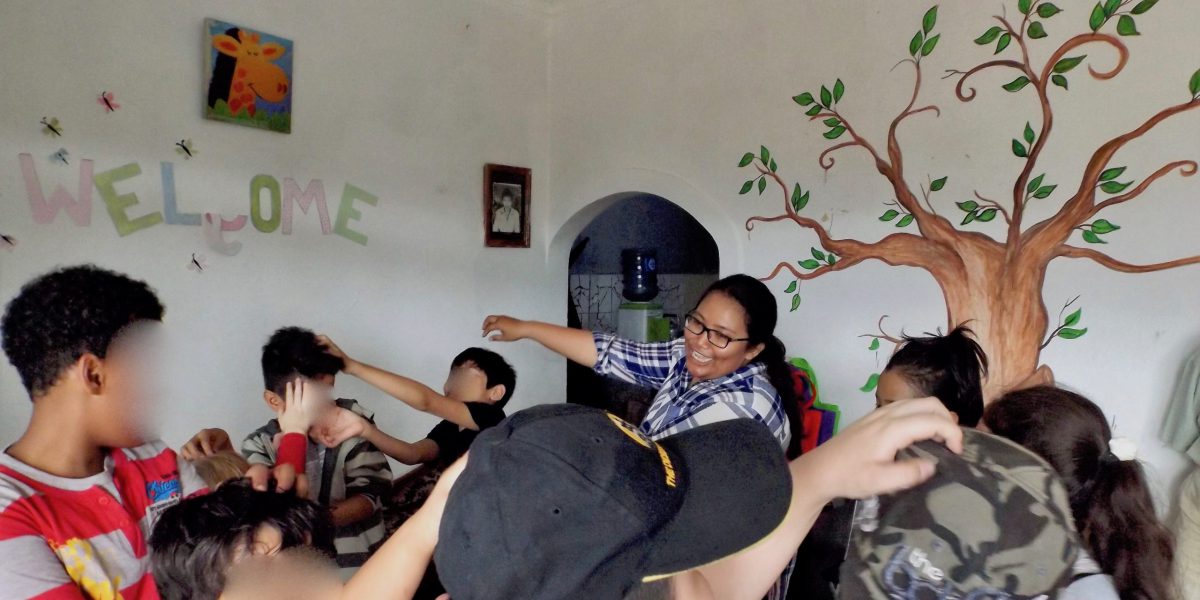Indonesia: The forgotten refugees
15 February 2018|Lars Stenger, National Information Advocacy Officer, JRS Indonesia
Yogyakarta, 15 February 2018 – Indonesia, the world’s fourth most populous country and home to 250 million people, hosts 13,800 forcibly displaced people from 52 nations—e.g. Somalia, Iraq, Iran, Pakistan, Palestine, Sudan, and Yemen. Men, women, and children from ethnic or religious minorities (such as the Hazara from Afghanistan, Rohingya from Myanmar, or Tamil from Sri Lanka) have come to Indonesia during the last decade as asylum seekers and refugees, in search of international protection.
Indonesia, which produced refugees in the past, has not ratified the Refugee Convention or protocol, but has so far mostly upheld its non-refoulement obligation. The country allows UNHCR to determine those in need of international protection, but had until the end of 2016 no clear guidelines for authorities as to how to handle their refugee population.
While some JRS Indonesia staff are present to provide psychosocial activities in only two of the thirteen immigration detention centres, which serve a minority of the 2,000 people who are detained under the immigration law, its focus since 2012 has been the asylum seekers and refugees living independently in the community in surrounding areas of the capital city Jakarta.
40 per cent of people seeking asylum in Indonesia survive without support from the government or other humanitarian organisations; they are forced to use their savings and rely on money sent by family and friends. Many, at some point, end up in desperate situations without sufficient food or shelter. JRS Indonesia’s “befriend urban refugees” project in West Java is the main service provider for the most vulnerable: those trying to survive the year’s long waiting process of receiving refugee status and resettlement. We are confronted with difficult decisions as to whom is most vulnerable and deserving of our support.
JRS Indonesia provides life-saving support towards housing, food, and healthcare to vulnerable families with children, and people with physical and mental health conditions. Seven JRS staff members, from a variety of backgrounds, accompany those who have urgent healthcare needs, but are unable to pay for a physician’s care at local medical facilities. There is also a cadre of volunteers who go with the refugees to local clinics to interpret their condition to the doctors, nurses, and pharmacists. Telephone or face-to face-requests for financial support towards housing and food are followed up by home visits, where individual needs and resources are evaluated, and decisions are made as to the most appropriate form of support.
Refugees with skills and talents are encouraged to volunteer their time as community interpreters or as English teachers in one of two JRS learning centres, where they help each other acquire important language skills. First and foremost, we aim to be a friend during a difficult period in the lives of the refugees, whom we see as our brothers and sisters; we also strive to identify and realize solutions, and enable them to regain at least some aspects of normality and autonomy as teachers or students. Recently, we have also encountered an increasing need to assist asylum seekers to learn about their rights. We established information sessions and individual consultations to keep them aware as to where they stand in the asylum-seeking process.
All in all, this year has not been any easier for refugees in Indonesia: many experience even longer waiting times and less prospect for resettlement out of the country. Such conditions have increased the urgency to explore new and creative possibilities towards a dignified life in exile. While the number of asylum seekers and refugees is small compared to other states, a harmonious and mutual engagement between forcibly displaced people and local communities is paramount.
JRS Indonesia conducts public awareness and community engagement activities, such as inviting refugees to celebrate national holidays with the local community. Educating local students about forcibly displaced people, both living in Indonesia and throughout the world, promotes greater understanding and tolerance. We are encouraged by a growing number of volunteers, from both the refugee community and local Indonesians, who support and inspire our humanitarian effort towards better refugee rights and integration.
Over the years, JRS has become a trusted partner of refugees and their host communities; part of our mission is finding solutions towards a better and safer future for both. Within the financial and human limitations that we experience, we are committed to do our best to enable our brothers and sisters seeking international protection, the ability to overcome the adversities of the past and move into a more stable future— wherever it might be.
Lars Stenger, National Information Advocacy Officer, JRS Indonesia



